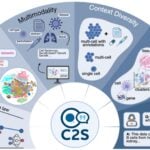The company showed off a set of role-based AI agents in Oracle Fusion Cloud Customer Experience that promise to speed up decisions for marketing, sales, and service leaders, do repetitive tasks, and give personalized recommendations.
The rollout shows how companies that make enterprise software are moving away from generic copilots and toward task-oriented agents that are built into daily workflows.
Oracle said that the agents run on Oracle Cloud Infrastructure and are already built into Fusion Cloud.
This means that customers don’t have to put together different tools or train models before they can get value.
The company framed the release as a way to boost efficiency and revenue, saying that the agents would help teams focus on higher-probability opportunities while cutting down on busywork.
Chris Leone, Oracle’s executive vice president of Applications Development, said in a press release, “The new AI agents in Oracle Fusion Applications help CX leaders deliver personalized support, deepen customer loyalty, and unlock new revenue opportunities with intelligent insights and agentic automation.”
In marketing, agents look at account fit and buying groups and see if audience data meets the requirements for predictive models.
In sales, agents can quickly summarize quotes and contracts, give sellers advice on how to close deals based on internal references, and show sellers cross-sell and upsell options based on what customers have bought in the past.
In service, agents sort tickets, guess how likely it is that a problem will get worse, and turn chats or transcripts into structured service requests.
A field service agent writes work orders so that technicians know what to expect when they arrive.
Oracle is betting that line of business teams will get value faster from agents that target specific tasks than from broad, free-form chatbots.
The company also says that the agents are natively integrated at no extra cost, which could make it easier for people to use them when they don’t have a lot of money.
Oracle’s decision to move away from open-ended prompts and toward defined roles and outcomes may help customers better measure impact by using clearer baselines like conversion rates, sales cycle times, first contact resolution, and agent handle times.
The degree to which those metrics get better will depend on how good the data is, how well the model is governed, and how well customers adapt their processes to the new automation.
Companies that are thinking about adopting should focus on mapping the agent catalog to current problems and choosing tasks that happen often and can be automated quickly.
Make sure that the integration with CRM data and content repositories is clean so that advice and recommendations are specific and not general.
Set rules for when people can look over suggested actions, especially in regulated fields or complicated deals. Clear ownership and success metrics will be more important than how new agentic workflows are.




















